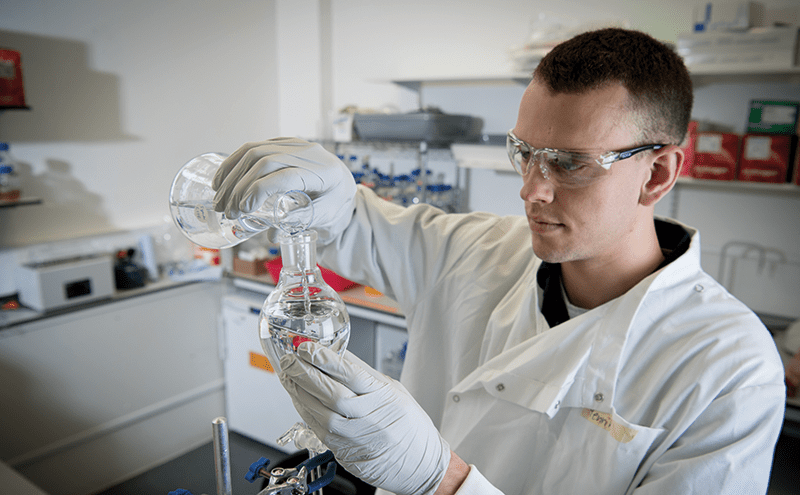
A granular adsorbent capable of the specific binding and removing of target micro-pollutants from wastewater has won a prestigious materials science award.
Apparently capable of removing pesticides, pharmaceuticals, high performance chemicals and heavy metals, the absorbent is expected to be particularly relevant at commercial airports, oil and gas operations and at military installations where there are significant micro-pollutants.
CustoMem, founded in 2015 by two Imperial College London graduates, Henrik Hagemann and Gabi Santosa, has been awarded the £25,000 Venture Prize by the Armourers and Brasiers Company.
“Although industrial micro-pollutants comprise only a small percentage of total pollutants, their complex chemistries prevent them from being effectively dealt with by current waste water treatment methods. This renders freshwater unusable and contributes to water stress that will affect 47 per cent of the world’s population by 2030,” explained Henrik Hagemann, CEO of CustoMem. “One such class of micropollutants includes Perfluorinated Compounds (PFCs), which pose a substantial health problem as they are highly toxic to humans and animals.”
PFCs are common in Aqueous Film Forming Foams (AFFFs) used for firefighting and can also be found in fluoropolymer coated cookware, sports clothing, medical equipment, and more. They are amongst the most stable organic compounds and are highly persistent in the environment.
The health threat posed by PFCs has prompted many countries to lay down more stringent regulations to the discharge of these compounds. This is evidenced by recent moves by both the EU through the Environmental Quality Standards Directive and in the US through the Environmental Protection Agency.
CGM… is cost effective and designed to drop-in to existing infrastructure…
CustoMem has combined its expertise in biomaterials and synthetic biology to create CustoMem Granular Media (CGM). This is described as a novel bio-adsorbent that can selectively capture micropollutants like PFCs with ten times faster binding kinetics and two times greater adsorption compared with traditional adsorbent materials like anion-exchange media and granular activated carbon. CGM, once saturated, can be regenerated more than five times. The captured pollutants can be removed with a proprietary wash and safely disposed of or repurposed.
“Our CGM solution is cost-effective and designed to drop-in to existing infrastructure. This avoids the need to install expensive treatment processes and will augment water recycling and reclamation on local and industrial scales,” said Hagemann.
CGM is seemingly designed and manufactured through a sustainable biological production process that does not rely on or produce any hazardous chemicals and reduces energy consumption. It enables a circular economy and reduces energy consumption.
CustoMem’s CGM is pertinent to navy and airforce bases where AFFFs for firefighting are indispensable for safety reasons. CGM can treat these industries’ industrial wastewater and help restore legacy contamination sites.
The firm is initially targeting the PFCs treatment market, worth $1.6bn in Europe and the US. However, CGM can also address hazardous wastewater from industries like mining, pharmaceuticals and textiles, said Hagemann.
“This pioneering development looks to harness nature’s capacity to make biomaterials which will promote human health and provide a solution to a key environmental issue,” said Professor Bill Bonfield, chairman of the Armourers and Brasiers Venture Prize judging panel.
The £25,000 prize will enable CustoMem to better characterise and test the technical performance of CGM for removing PFCs from waste water in industrially relevant conditions.
CustoMem is based at Imperial College’s Incubator and supported by SynbiCITE, the Royal Academy of Engineering, Innovate UK, and Climate–KIC.







